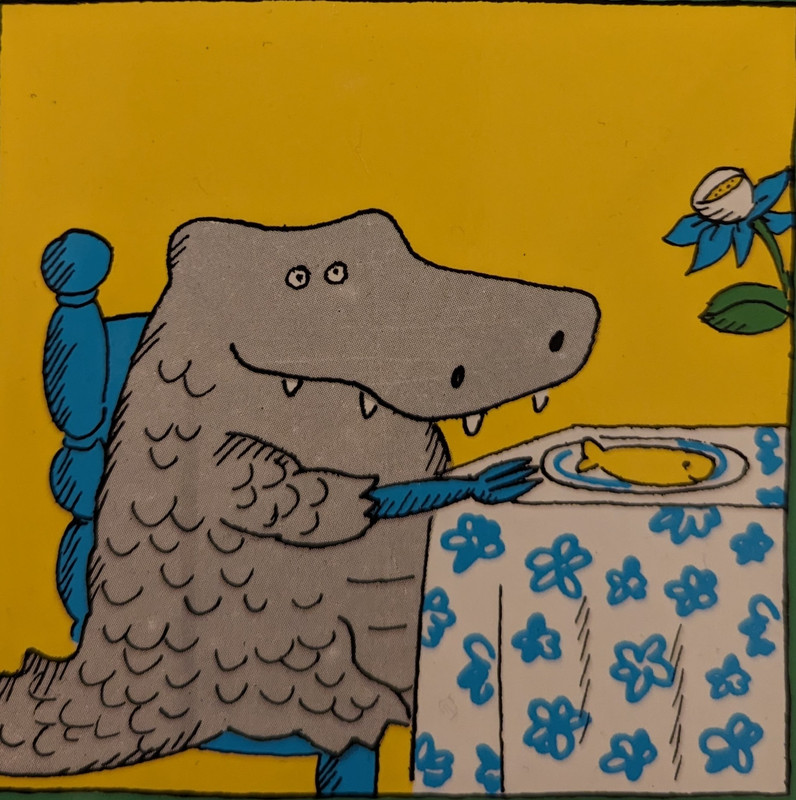- Welcome to Cook'd and Bomb'd.
-
Reasons why I want to obliterate... by Chicory
[Today at 04:32:59 PM] -
 American words/phrases you...
by RDRR
American words/phrases you...
by RDRR
[Today at 04:31:20 PM] -
 Voice recorders/dictaphones...
by QDRPHNC
Voice recorders/dictaphones...
by QDRPHNC
[Today at 04:30:47 PM] -
 Laurence Fox loses court case...
by dontpaintyourteeth
Laurence Fox loses court case...
by dontpaintyourteeth
[Today at 04:29:46 PM] -
 The Captain Tom grift continues...
by Cuellar
The Captain Tom grift continues...
by Cuellar
[Today at 04:29:08 PM] -
 Is this proof that AI has...
by lazyhour
Is this proof that AI has...
by lazyhour
[Today at 04:28:36 PM] -
 The Trevor Bastard Extended...
by king_tubby
The Trevor Bastard Extended...
by king_tubby
[Today at 04:24:00 PM] -
 Talking Pictures
by A Hat Like That
Talking Pictures
by A Hat Like That
[Today at 04:21:24 PM] -
 watching The Sopranos for...
by Schnapple
watching The Sopranos for...
by Schnapple
[Today at 04:20:50 PM] -
Doctor Who - Series 14, part... by McDead
[Today at 04:19:29 PM]
Members
 Total Members: 17,827
Total Members: 17,827 Latest: skinnylike
Latest: skinnylike
Stats
 Total Posts: 5,583,840
Total Posts: 5,583,840 Total Topics: 106,748
Total Topics: 106,748 Online Today: 1,104
Online Today: 1,104 Online Ever: 3,311
Online Ever: 3,311- (July 08, 2021, 03:14:41 AM)
Users Online
 Users: 112
Users: 112 Guests: 842
Guests: 842 Total: 954
Total: 954 Jack Shaftoe
Jack Shaftoe katzenjammer
katzenjammer beanheadmcginty
beanheadmcginty NattyDread 2
NattyDread 2 DelurkedToHelp
DelurkedToHelp chutnut
chutnut RHX
RHX JaDanketies
JaDanketies thevoola
thevoola Old Thrashbarg
Old Thrashbarg Jumblegraws
Jumblegraws Cuellar
Cuellar Nibbsy
Nibbsy Pavlov`s Dog`s Dad`s Dead
Pavlov`s Dog`s Dad`s Dead Gambrinus
Gambrinus Midas
Midas dead-ced-dead
dead-ced-dead Butchers Blind
Butchers Blind ThisisJoeyC
ThisisJoeyC JesusAndYourBush
JesusAndYourBush Magnum Valentino
Magnum Valentino Scarlett Tangible
Scarlett Tangible Pranet
Pranet Angst in my Pants
Angst in my Pants KaraokeDragon
KaraokeDragon Better Midlands
Better Midlands Norton Canes
Norton Canes Alberon
Alberon machotrouts
machotrouts Shaxberd
Shaxberd Brigadier Pompous
Brigadier Pompous iamcoop
iamcoop MojoJojo
MojoJojo Theoretical Dentist
Theoretical Dentist KevinCoed
KevinCoed Ruben Remus
Ruben Remus RicoMNKN
RicoMNKN There Be Rumblings
There Be Rumblings mash
mash oilywater
oilywater RDRR
RDRR Senior Baiano
Senior Baiano jobotic
jobotic daf
daf Zetetic
Zetetic Huxwell
Huxwell lazyhour
lazyhour Underturd
Underturd DocDaneeka
DocDaneeka jamiefairlie
jamiefairlie Whug Baspin
Whug Baspin noiceinmydrink
noiceinmydrink Greyhound
Greyhound Beelog
Beelog Hound Of The Basketballs
Hound Of The Basketballs Deanjam
Deanjam SteveDave
SteveDave Gob Shine Algorithm
Gob Shine Algorithm OpenMikeKnight
OpenMikeKnight curiousoranges
curiousoranges Mister Six
Mister Six Golden E. Pump
Golden E. Pump phes
phes HMS Beanspiller
HMS Beanspiller McDead
McDead Bunty Levert
Bunty Levert Harry Badger
Harry Badger Buffalo Many Times
Buffalo Many Times brat-sampson
brat-sampson copa
copa Schnapple
Schnapple Kankurette
Kankurette greenman
greenman pupshaw
pupshaw Mr Balowski
Mr Balowski petercussing
petercussing FredNurke
FredNurke Thosworth
Thosworth Prax150
Prax150 AliasTheCat
AliasTheCat rack and peanut
rack and peanut non capisco
non capisco drummersaredeaf
drummersaredeaf Registering to lurk
Registering to lurk Imperator Helvetica
Imperator Helvetica Gethin Grave
Gethin Grave hcrumble
hcrumble A Hat Like That
A Hat Like That Twilkes
Twilkes Fishfinger
Fishfinger Calpurnia
Calpurnia BeardFaceMan
BeardFaceManThe social history of Nursery Rhymes
Started by butnut, March 02, 2004, 01:57:44 PM
Previous topic - Next topic
User actions

